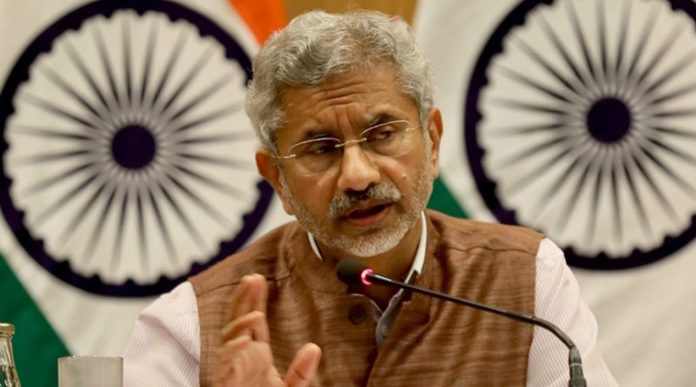New Delhi (NVI): India today laid out its priorities for its candidature for the UN Security Council 2021-22, with the Government saying that it can play a positive role in this “extraordinary situation” as the global community is facing multiple challenges amid the Covid-19 pandemic.
While launching India’s campaign to secure an elected seat on the UN Security Council, External Affairs Minister S Jaishankar listed out the countries priorities ahead of the June 17 UNSC elections.
Notably, India is a candidate for a non-permanent seat at the United Nations Security Council for a two-year term beginning in January 2021.
Jaishankar said this election will take place at the United Nations on June 17 and India is the single endorsed candidate from its regional group.
India at the UNSC : 2021-22
EAM @DrSJaishankar launched India’s Priorities for its candidature for the @UN Security Council 2021-22.
Read more about India’s Priorities ⤵️https://t.co/gwuTFYqXmS pic.twitter.com/GE9Kpb60bL
— Anurag Srivastava (@MEAIndia) June 5, 2020
As India expects to be elected for an eighth term on the UNSC this month, the EAM launched a brochure setting out India’s five key priorities for its campaign to secure the seat:
- Seeking responsible and inclusive solutions
- Concrete and result-oriented action at the Security Council for an effective response to international terrorism
- Reformed Multilateralism to reflect contemporary realities
- A comprehensive approach to peace and security, guided by dialogue, mutual respect, commitment to international law, for which we also hope to help streamline UN Peacekeeping
- Technology with a human touch
“In this extraordinary situation, India can play a positive global role. We have always been a voice of reason and a votary of international law. We advocate dialogue, consultation and fairness in our approach to global issues. And we emphasize global development, addressing climate change and eradicating poverty as central to planet’s future,” he said.
Jaishankar also said that these priorities, in Prime Minister Narendra Modi’s words, reflect India’s Five “S” approach to the world:
- Samman (Respect)
- Samvad (Dialogue)
- Sahyog (Cooperation)
- Shanti (Peace); to create conditions for universal
- Samriddhi (Prosperity)
He further added, “Through this approach, we seek to move toward a ‘New Orientation for a Reformed Multilateral System’, – also known as NORMS.”
Apart from this, the External Affairs Minister also said that India is facing four “very different challenges” to international peace and security, ten years since we were last elected in the UN Security Council:
- The normal process of international governance has been under increasing strain as frictions have increased.
- Traditional and non-traditional security challenges continue to grow unchecked. Terrorism is the most egregious of such examples.
- Global institutions remain unreformed and under-representative. They are therefore less able to deliver.
- The COVID-19 pandemic and its grave economic repercussions will test the world like never before.








